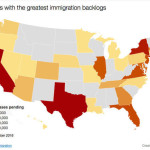The “Texans for Lawsuit Reform Foundation” has released a deep-dive into the ongoing role of the Lone Star state in asbestos litigation. The document notes that Texas has played a leading role, first on the side of victims’ attorneys and then on the side of tort reform and now in the ongoing litigation. While written from a decidedly pro-business tort-reform point of view, the paper still notes that some victims became “pawns” in the system and gives a good timeline on the litigation’s evolution.
(The National Courts Monitor has recent agreed to facilitate a victim’s group “investigative” effort to determine the extent that asbestos victims might have become litigation victims. Check out the website at http://www.asbestosdoublevictims.org/)
In its press release on the paper, TLR Foundation President Hugh Rice Kelly is quoted saying that a “handful” of “… lawyers’ activities were carried out at the expense of the judicial system, thousands of plaintiffs who were pawns in the litigation game, and hundreds of defendants who paid settlements to uninjured plaintiffs.”
The white paper is also a sort of greatest hits of asbestos litigation issues, noting recent trust-claim controversies and the infamous “witness coaching memo.” To view the full paper:
http://www.tlrfoundation.com/sites/default/files/pdf/TLR_Asbestos_Foundation_Paper_02.2017 _Web.pdf.





